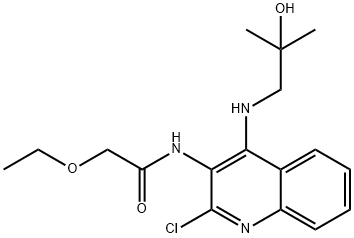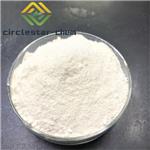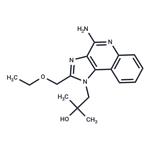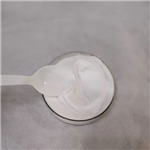Description
Resiquimod (CAS 144875-48-9) is a Toll-like receptor 7/8 agonist.1 May be used as an immune adjuvant in cancer vaccines.2 Resiquimod-carrying synthetic vaccine particles augment the immune response to encapsulated antigen and exhibit strong local immune activation without inducing systemic cytokine release.3 Topical treatment of wild-type mice induces systemic autoimmune disease which may be used as a model of systemic Lupus erythematosus.4? It displayed potent antiviral activity (EC50 = 23.5 nM) in a murine norovirus replicon model.5
Uses
Resiquimod is an imidazoquinoline derivative that acts as an immune response modifier. Resiquimod shows antitumor and antiviral activity and is used in the treatment of skin lesions such as herpes simplex virus. Resiquimod is a toll-like receptor 9 (TLR7) agonist.
Uses
Resiquimod has been used in the stimulation of bone marrow-derived dendritic cells (BMDCs) stimulation( and B cells. It has also been used as a ligand for toll-like receptors (TLR7) in malignant melanoma cell line B16F10.
Definition
ChEBI: Resiquimod is an imidazoquinoline.
Biochem/physiol Actions
Resiquimod belongs to the class of imidazoquinolinamines compounds with immunomodulatory effects. Resiquimod increases the levels of cytokines such as TNF-α, IL-6 and IFN-α.
References
1) Jurk et al. (2002), Human TLR7 or TLR8 independently confer responsiveness to the antiviral compound R-848; Nat. Immunol., 3 499
2) Sabado et al. (2015), Resiquimod as an immunologic adjuvant for NY-ESO-1 protein vaccination in patients with high-risk melanoma; Cancer Immunol. Res., 3 278
3) Ilyinskii et al. (2014), Adjuvant-carrying synthetic vaccine particles augment the immune response to encapsulated antigen and exhibit strong local immune activation without inducing systemic cytokine release; Vaccine, 32 2882
4) Yokogawa et al. (2014), Epicutaneous application of toll-like receptor 7 agonists leads to systemic autoimmunity in wild-type mice: a new model of systemic Lupus erthematosus; Arthritis Rheumatol., 66 694
5) Tuipulotu et al. (2018), TLR7 Agonists Display Potent Antiviral Effects against Norovirus Infection via Innate Stimulation; Antimicrob. Agents Chemother., 62 e02417






